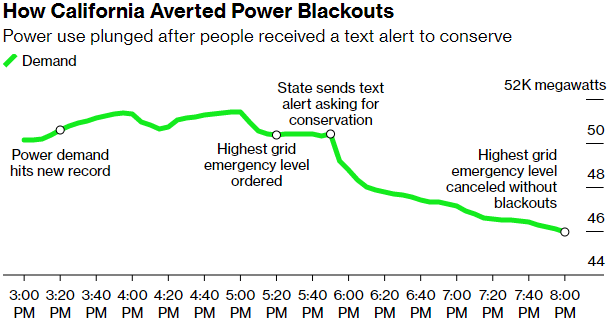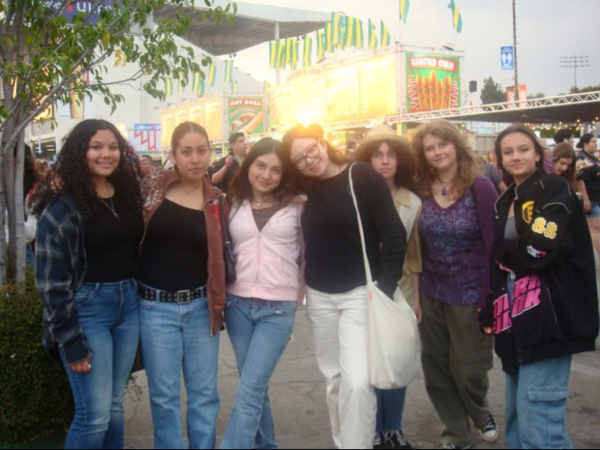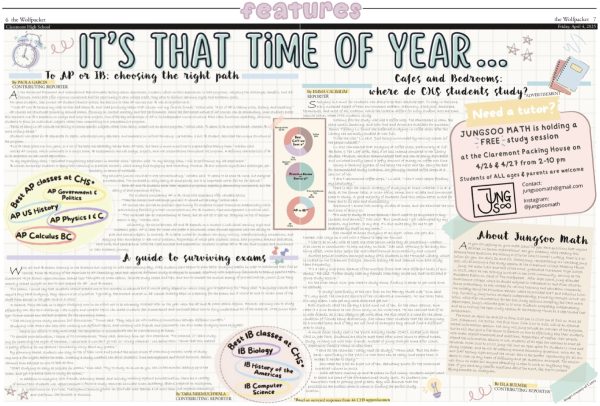An Environmental Science Teacher’s Thoughts on Power Usage
Throughout early September of 2022, California experienced a dramatic heatwave that pushed power usage to the brink, driving air conditioning usage to an all-time high and ultimately damaging the state’s electrical grid. Jenna Mittman, an environmental science teacher at Claremont High School, provides keen insight into the nature of California’s recent heatwave and the consequences of power usage at large.
“It’s actually kind of scary to think about visible climate change. Climate is not something that you’re supposed to notice, it happens on larger scales than that. The answer that people want to hear about [the heat wave] is that it’s all climate change, or that it’s all natural. The correct answer is that it’s both,” Mittman said.
The worst of the heatwave, which occurred on a bright Tuesday afternoon, broke temperature records. Santa Rosa clocked in at 115 degrees fahrenheit, Napa hit 114, and Sacramento topped at 116.
“We do have weather patterns like El Nino events that influence how hot it is during the summer,” Mittman said. “But when you add in climate change, it makes those weather patterns more severe.”
As Californians struggled to stay cool, grid operators began to grow concerned. On September 6th, the state’s Office of Emergency Service’s sent out a text asking people to conserve power if they could. Power demand plunged in a matter of hours, equating to the turn off of about 800,000 homes, and detrimental blackouts were avoided.
“I do think that California is overusing power. Homes, municipalities, contribute to 49-50% of electricity use, which is a big chunk. Californians can do stuff, like what the text prompted us to do, and it worked. But then again, there are businesses that can afford a huge bill and leave the AC and lights on when no one is there,” Mittman said.
Businesses have been getting called out for their wasteful energy practices, and some are adapting by switching to motion-sensored lights. The overuse of power contributes negatively to climate change, especially in the case of air conditioning, which does not have the energy-saving features that other appliances have.
“Air conditioning is horrible for the environment. There’s nothing necessarily bad coming from an AC, there’s no emissions. But all the electricity that powers an AC has an energy source. The [energy source] that California uses the most is natural gas, which is the friendliest fossil fuel for the environment. It’s still not good, but it’s the best of the fossil fuels. The efficiency of an air conditioner is only as good as its energy source,” Mittman said.
Claremont High School has an air conditioner built into every single classroom. These AC’s rack up energy, especially when combined with plugged-in outlets, turned on lights, and whirring projectors. CHS has had its fair share of obstacles when trying to conserve energy.
“[Claremont High School] used to have a guy that went around during all of our breaks, and he would go around and unplug the things that teachers would forget to unplug. He would leave a note that would say… “You didn’t do this right,” or, “Congratulations! You did everything correctly.” I think saving energy is a good idea, and I want my students to be able to do that,” Mittman said.
Ultimately, how can Claremont High School students take control of their power usage?
“Young people have a lot more influence than they think. Being mindful of power usage is doing something small, because even individual actions can make a big impact. Things like unplugging devices that may be using what we call ghost power, when you’re not using a device, unplug it. TV’s are especially known for that. Using less water, and influencing older people to convert grass lawns into xeriscaping, filled native drought tolerant plants. Making sure light bulbs are changed to LEDs. Any small action done collectively can make a big difference,” Mittman said.
Hello there! Our goal is to provide relavent, engaging journalism for readers of all ages. Your donation will support the student journalists of the Wolfpacket at Claremont High School, and will allow us to purchase equipment, print our monthly issues, and enter in journalism competitions. We appreciate your consideration!

Frida Garcia is a senior at Claremont High School and the Head Features Editor of the Wolfpacket. Besides designing for the features spread, Frida’s...








